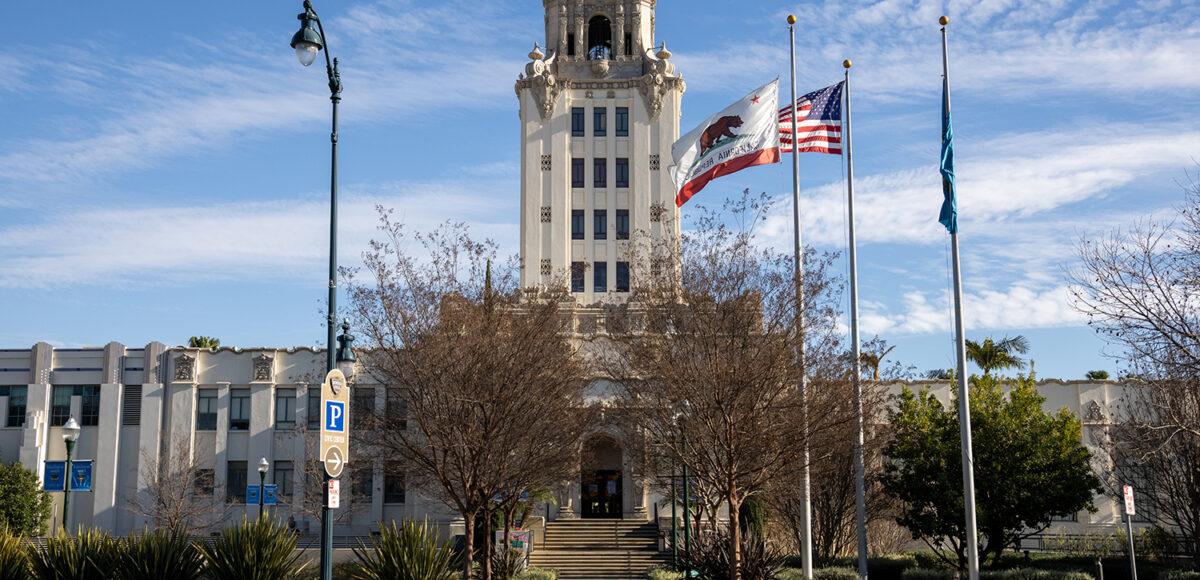During an Aug. 20 study session, the Beverly Hills City Council was tentatively supportive of a new ordinance establishing “free speech zones” at city events, but the council agreed significant details need to be ironed out before they could approve the new ordinance.
Mayor Lester Friedman said the ordinance is aimed at balancing the public’s right to free speech with the right to “quiet enjoyment” of public spaces and activities, but achieving that balance is no easy task.
“We still need a lot of work to get to a place where we’re going to feel comfortable with it,” Vice Mayor Sharona Nazarian said.
The free speech zones would be locations outside of a scheduled event where people could promote or solicit for their cause, City Manager Nancy Hunt-Coffey said. The number of spaces available would differ depending on the size of the venue or event, attendance would be on a first-come first-serve basis, and megaphones or other sound-amplifying devices would be prohibited, she added.
Hunt-Coffey said there would be slightly different rules for the Beverly Hills Farmers’ Market, where certain restrictions on speech are already in place. Though officials could establish a free speech zone inside the market, people are already allowed to express their views outside the market’s perimeter.
With such broad guidelines, the city needs to be careful about inadvertently limiting speech, Nazarian said. For instance, one person may have a better understanding of the attendance policy than others, which could limit someone else’s ability to express their speech.
Nazarian also worried that the program would strain city resources. She wondered how staff would enforce rules, such as those prohibiting bullhorns, and noted that staff would have to monitor how many people occupy the space and for how long.
In response to a similar question from Councilmember Mary Wells, Hunt-Coffey said staff was imagining a “low-tech” solution where staff would set up an information booth and register people with clipboards.
Wells raised other logistical concerns, including how staff would regulate people who leave and then want to return to the free speech zones, and what the protocol would be if someone declines to give their name when registering to enter.
Hunt-Coffey said staff had envisioned assigning time slots, and staff will provide more detailed responses to Wells’ other questions when the item comes back to council.
Nazarian and Councilmember John Mirisch noted that the program could also present complicated questions about religious expression. Would there be different rules for someone proselytizing than for a rabbi being asked to wrap tefillin—a Jewish prayer ritual—which sometimes occurs at public events?
Councilmember Craig Corman asked if other cities have passed similar ordinances, and City Attorney Laurence Wiener said he is not aware of any that have.
Corman also asked if the potential ordinance has been analyzed “with respect to the existing First Amendment law,” and Hunt-Coffey answered that the city has worked with an attorney from Richards, Watson and Gershon who has First Amendment expertise and helped “ensure that the measures here would meet criteria for First Amendment.”
Given that the proposal has been reviewed by an attorney, Corman said he supported the concept, but would like to discuss the legal provisions in more detail at a closed session before bringing it back to a public meeting.
Wiener, however, said that would not be “doable” in a closed session.
“I’m supportive [of] the idea …. I just need to feel comfortable we can do whatever we’re talking about doing before we approve it,” Corman said. “If it leads to litigation, and ultimately losing litigation, that doesn’t serve anybody any good.”
The council did not say when it would revisit the matter.
Also on Aug. 20, the council reviewed a list of financial recommendations to help the city address budget deficits anticipated over the next five years. The recommendations grew out of former Mayor Dr. Julian Gold’s Blue Ribbon Committee, which looked at ways for the city to generate new revenue and cut costs.
The recommendations include structural changes like reviewing ongoing contractual service agreements, reconsidering future Metro security costs and implementing zero-based budgeting, and one-time changes like reviewing the holiday decorations budget and suspending or reviewing General Fund transfers for capital projects.
Staff also recommended changes to the Rodeo Drive Committee/Special Events Liaison, Social Services Ad-Hoc, Community Security Ad-Hoc and other commissions that could help reduce expenditures and increase efficiency.
Councilmembers supported the recommendations, though Corman and Wells both advised against cutting costs around Metro security and substations, and Councilmember John Mirisch suggested that staff explore the idea of becoming a charter city, which could open new revenue opportunities.
Though Friedman said that following through with the recommendations could be difficult and requires a lot of care, the city will benefit in the long term.
“This is not going to be pretty,” Friedman said. “We’re going to have to do it surgically with a scalpel … it’s not going to come easy, and I think we all have to be prepared for that.







